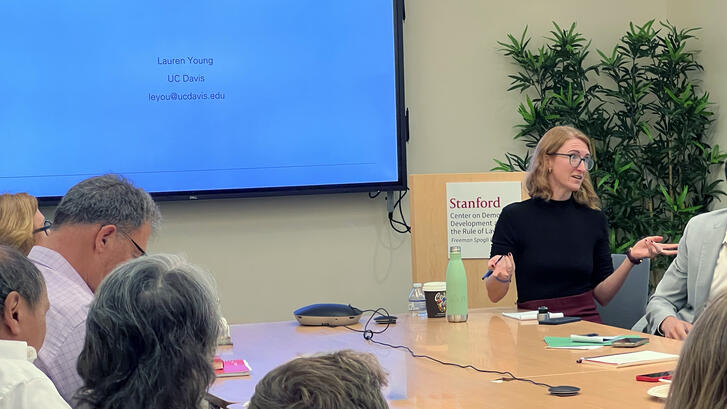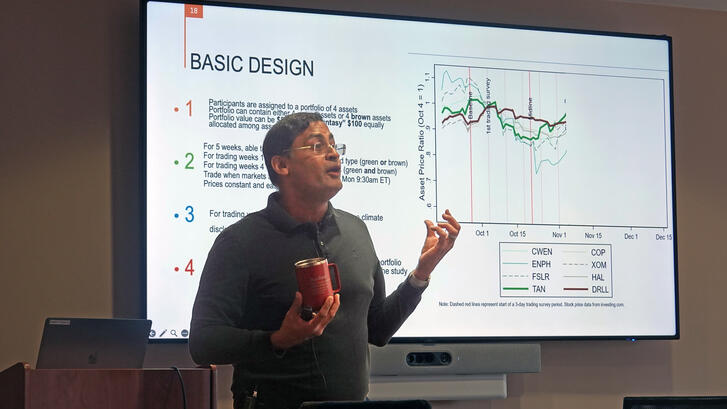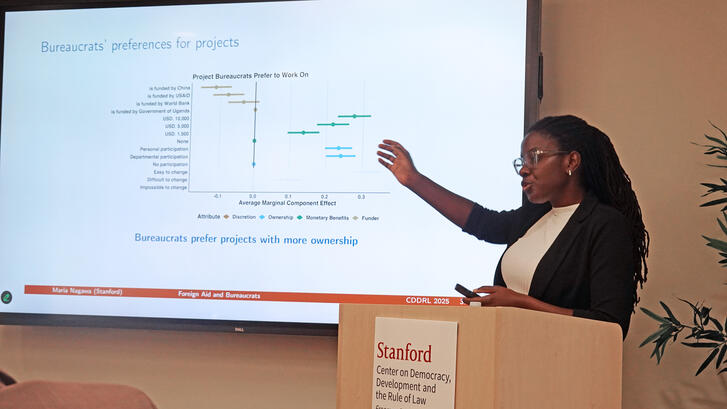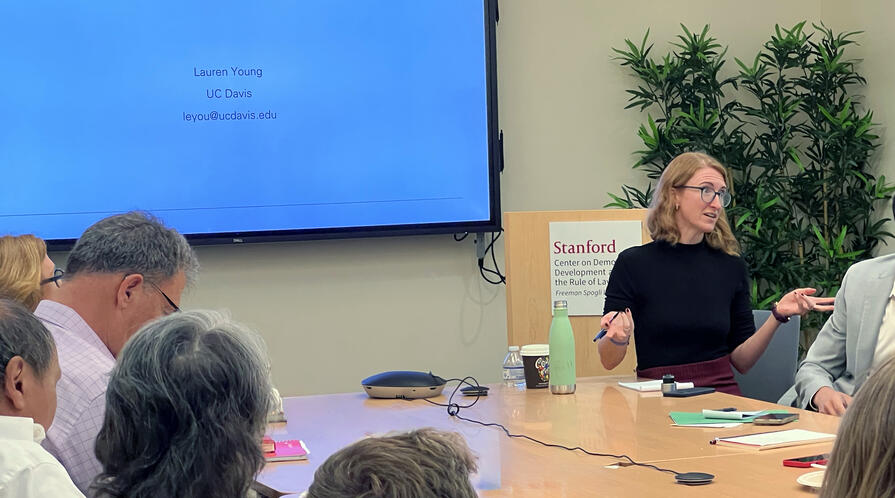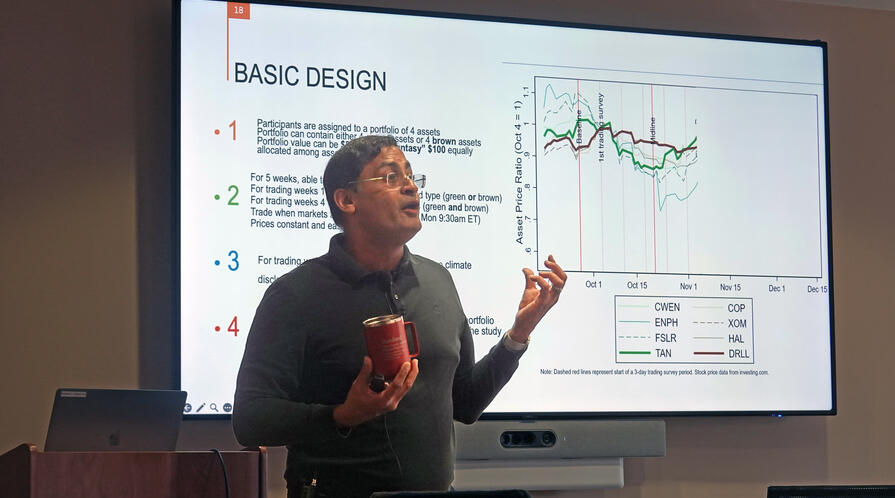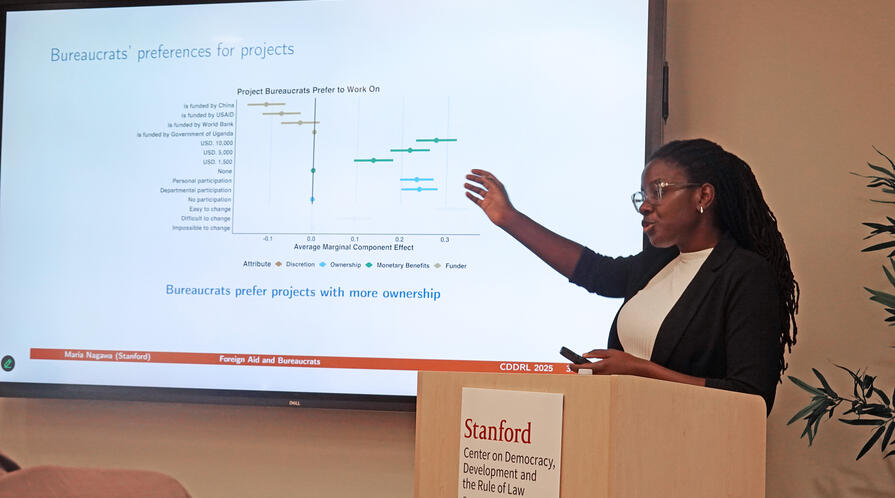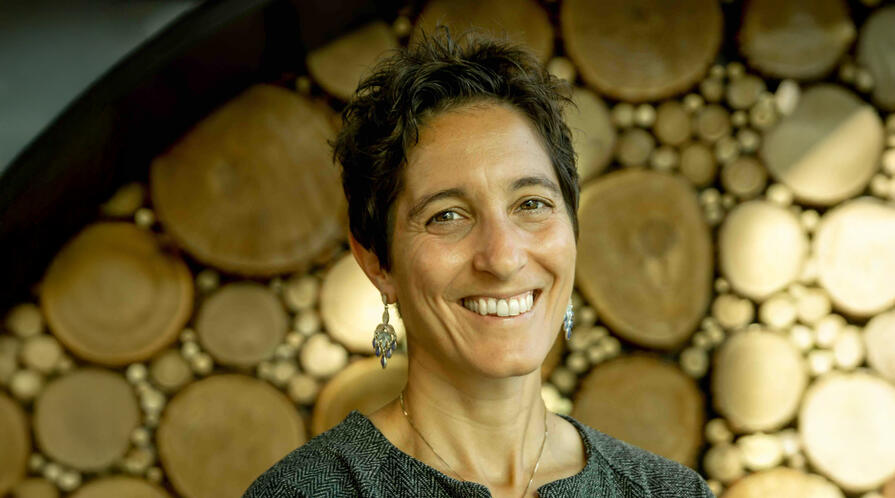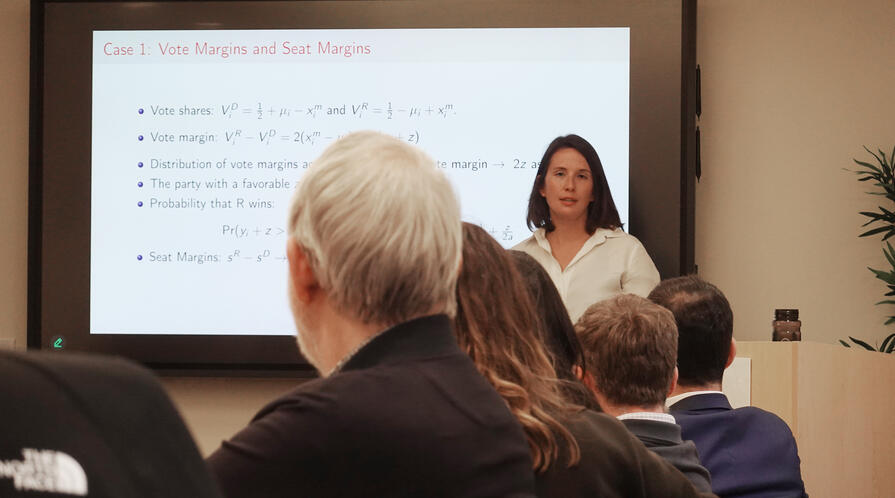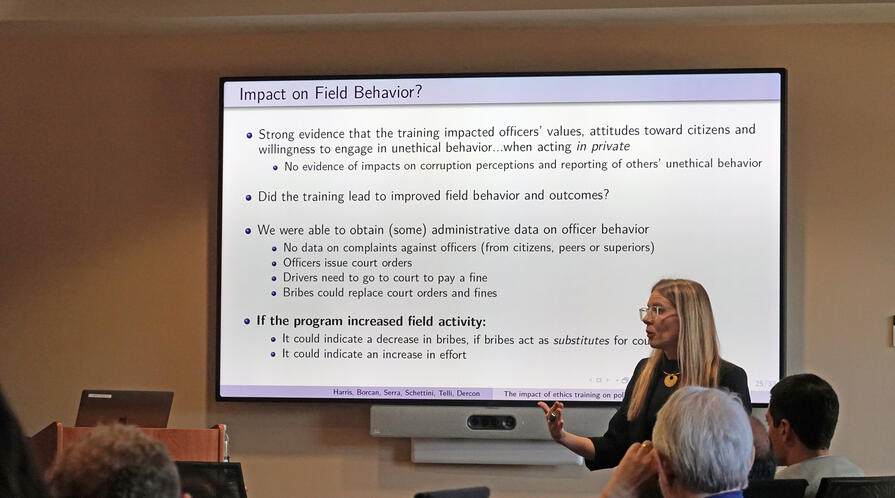Challenging Autocrats Abroad: Opposition Parties on the International Stage
In a CDDRL research seminar held on October 30, 2025, Einstein-Moos Postdoctoral Fellow Oren Samet presented his research on how opposition parties engage internationally to challenge authoritarian regimes, focusing on the costs and benefits of a phenomenon he terms “opposition diplomacy.” This CDDRL research seminar highlighted Samet’s book project, which explores how opposition actors shape international politics and what their strategies reveal about the global landscape of democracy.
Samet defines opposition diplomacy as the explicit efforts by political actors in the opposition to engage with international policymakers, promote their own priorities, and influence the foreign policies of external states. His research focuses on opposition diplomacy directed at Western governments in the post-Cold War era, undertaken by parties and politicians seeking to gain power through elections.
As Samet highlighted, opposition diplomacy can take several forms, including direct lobbying, international networking, diaspora mobilization, and public relations. These efforts can shape foreign policy decisions by building coalitions of international allies with overlapping goals and with influence within foreign policy establishments, as well as by persuading policymakers that opposition parties are credible partners. This, in turn, can be beneficial, as it draws attention to repression, strengthens advocacy for democratic reform, and helps motivate external pressure, including through public statements of solidarity and specific policies such as sanctions.
To study how these relationships operate, Samet analyzes data from party internationals – formal networks that connect political parties across countries – and their links with ideological groups represented within the European Parliament. He shows that when an opposition party from a country belonged to a party international with such links, members of the associated group in the European Parliament were more likely to raise issues about that country’s democratic deficits, indicating that these ties can increase visibility and solidarity abroad.
Samet further highlights this dynamic through the case of Cambodia, where opposition leaders have long appealed to Western governments and mobilized diaspora networks to pressure the prevailing autocratic regime. Their outreach helped bring international attention to Cambodia’s democratic backsliding and contributed to the imposition of European Union sanctions by increasing the visibility of regime abuses and helping to legitimize calls for stronger international action.
However, Samet emphasized that the costs of opposition diplomacy can often outweigh its benefits. International engagement can expose politicians to repression or legal risks, divert financial and human resources from domestic mobilization, and enable ruling regimes to portray opposition parties as agents of foreign influence. In Cambodia, for example, opposition figures who engaged in international outreach faced arrests, restrictions, and bans on political participation, showing how consequential such engagement can be. Additionally, as Samet discussed, opposition diplomacy can sometimes produce unintended effects by giving regimes further justification to tighten control or discredit opposition leaders in the eyes of the public. Ultimately, due to these risks, opposition diplomacy is most common when domestic opportunities are scarce, leaving opposition parties with few alternatives.
Samet closed by noting that these tradeoffs reveal the complex nature of opposition diplomacy. While opposition politicians can be influential global actors, their impact depends on how they weigh the risks and rewards of engaging abroad. Hence, the international environment for democratization is shaped not only by governments but also by the strategic choices of opposition actors themselves.
Read More
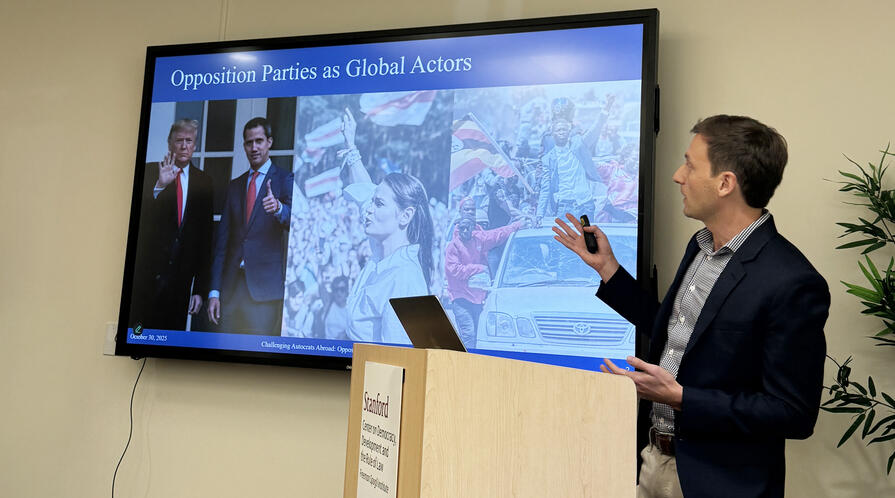
In a CDDRL research seminar, Einstein-Moos Postdoctoral Fellow Oren Samet explored the benefits, costs, and global reach of opposition diplomacy.

